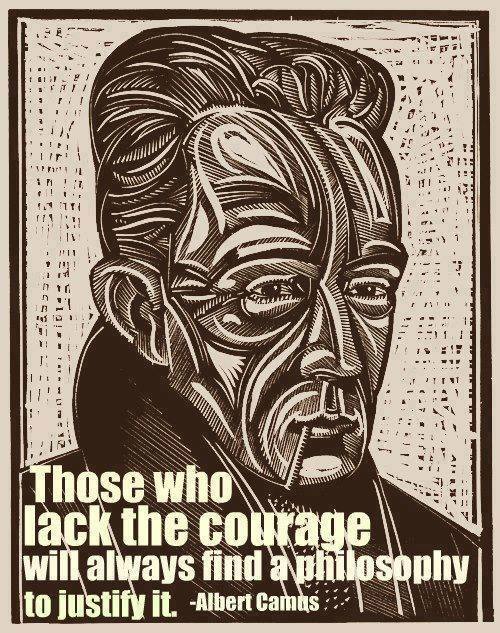 "[Camus']idea is simple: Human beings are caught in a constant attempt to derive meaning from a meaningless world. This is the ‘paradox of the absurd’."
"[Camus']idea is simple: Human beings are caught in a constant attempt to derive meaning from a meaningless world. This is the ‘paradox of the absurd’."“Maman died today. Or yesterday maybe, I don’t know. I got a telegram from the home: 'Mother deceased. Funeral tomorrow. Faithfully yours.' That doesn’t mean anything. Maybe it was yesterday” (Camus 1).M. Meursault's, apathy and detachment toward his mother are strong indications of absurdity. Especially since he calls his mother “Maman” rather than the English equivalent of mother, mère. This is interesting because “Maman” is more closely translated to mommy than mother. Nevertheless, why would Camus characterize M. Meursault, a man of insensitivity, with a tinge of vulnerability? Even so, this diction is a bit off-putting coming from a grown man.
“On their way out, and much to my surprise, they all shook my hand – as if that night during which we hadn’t exchanged as much as a single word had somehow brought us closer together” (Camus 12).
Meursault does not comply with the manners of society, so he is an outcast, namely the stranger. He puts no effort into relationships, so he usually does not get anything out of them. It is so obscure to know that this character places no value in sharing company with others, when society holds this at such a high regard. Alas, the simple equation of effort that what you put into it, is what you get out of it, echoes and builds throughout the book.
More to come!


Timely post, with Camus in tomorrow's readings!
ReplyDeleteIf you still have relevant thoughts on mind-body from a dancer's perspective that you can work in, btw, I'd love to see them.